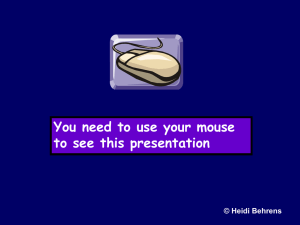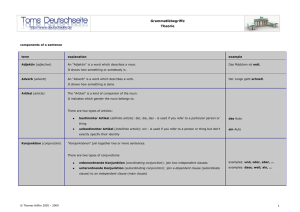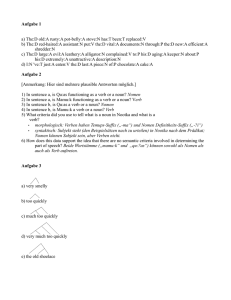Die Verben auf Deutsch
Werbung
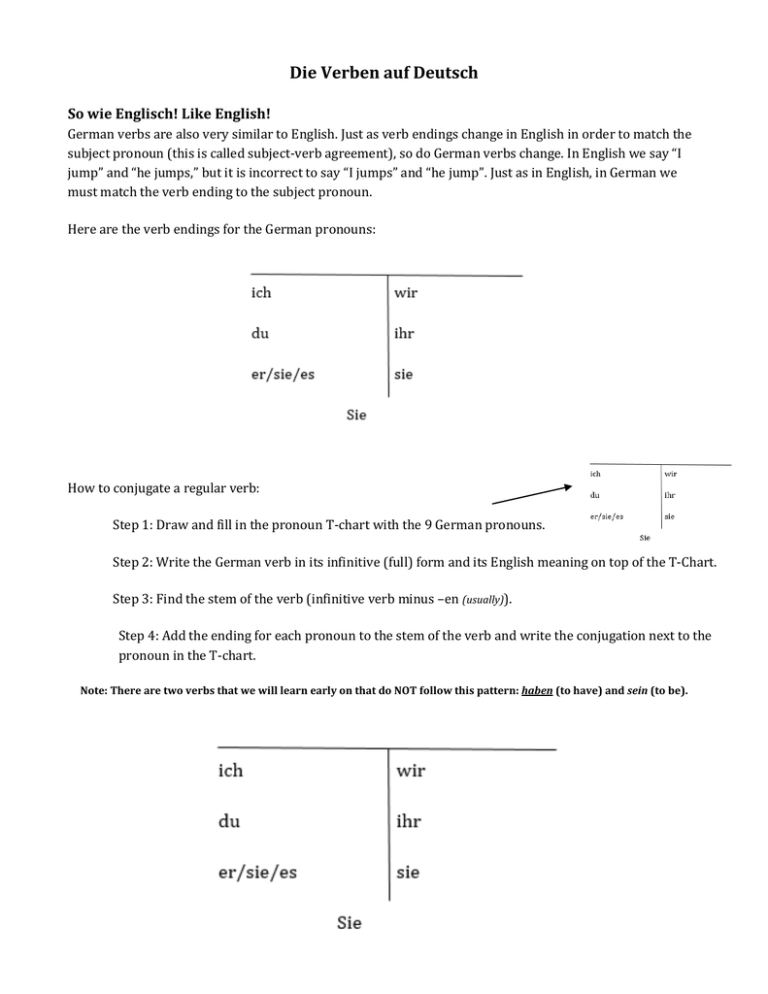
Die Verben auf Deutsch So wie Englisch! Like English! German verbs are also very similar to English. Just as verb endings change in English in order to match the subject pronoun (this is called subject-verb agreement), so do German verbs change. In English we say “I jump” and “he jumps,” but it is incorrect to say “I jumps” and “he jump”. Just as in English, in German we must match the verb ending to the subject pronoun. Here are the verb endings for the German pronouns: How to conjugate a regular verb: Step 1: Draw and fill in the pronoun T-chart with the 9 German pronouns. Step 2: Write the German verb in its infinitive (full) form and its English meaning on top of the T-Chart. Step 3: Find the stem of the verb (infinitive verb minus –en (usually)). Step 4: Add the ending for each pronoun to the stem of the verb and write the conjugation next to the pronoun in the T-chart. Note: There are two verbs that we will learn early on that do NOT follow this pattern: haben (to have) and sein (to be). Verben Arbeitsblatt Name: _____________________________ A. Now let’s practice conjugating a few verbs: gehen = wohnen = heißen = B. Fill in the correct forms of the verb “spielen” using the T-chart you created on the opposite page. 1. Ich _____________________ Basketball. 2. Er ______________________ Eishockey. 3. Wir ____________________ am Montag Fußball. 4. Ihr _____________________ gut Tennis. 5. _______________________ du Volleyball gern? 6. Herr Brown, Sie ______________________ Basketball sehr gut! 7. Aaron Rodgers und Clay Matthews ________________________ Football für die Packers. C. Fill in the correct form of the verb “wohnen” using the T-chart you created above. 1. Ich ________________________ in Greenville, aber Lisa ___________________________ in Hortonville. 2. Wo ___________________________ du? 3. Wir _________________________ in Madison. 4. ___________________________ ihr bei Subway? 5. Lena und Lutz ______________________ in Berlin. 6. Frau Fabry, wo ___________________________ Sie?
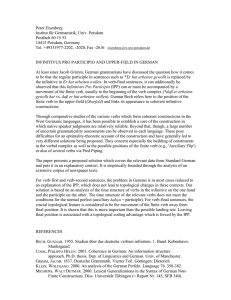
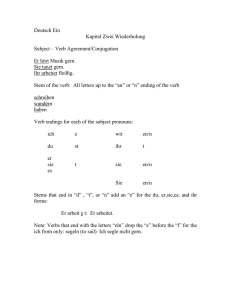
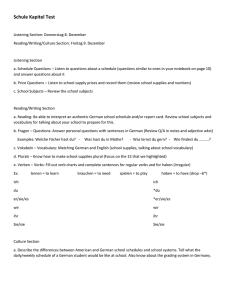
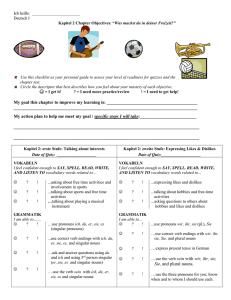
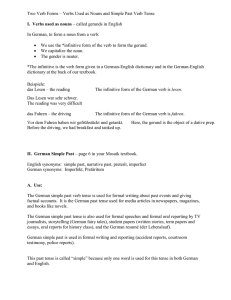
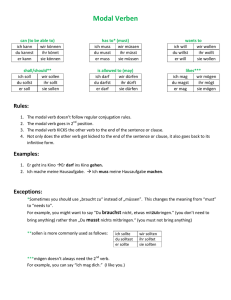
![D1A70204 Befehlformen [Command Forms] Commands (Befehle](http://s1.studylibde.com/store/data/006295093_1-ded304d13987e352eae01a2a5fa30f24-300x300.png)
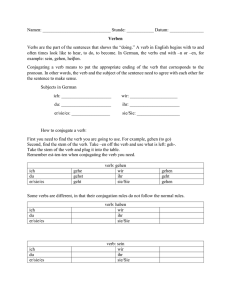
![D1A5 Starke Verben [Strong Verbs]](http://s1.studylibde.com/store/data/005537802_1-7c1b99dd5766654382e175dbf31adcce-300x300.png)
